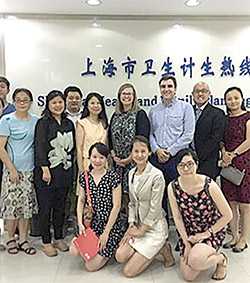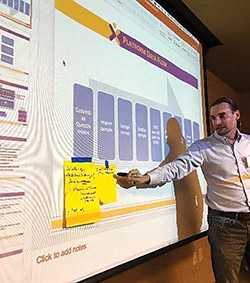Bloomberg Data for Health Initiative: Making Strides in NCD Mobile Phone Survey Platforms

Without accurate and timely data, countries cannot prioritize resources and make sound policy decisions to address the growing burden of NCDs. Innovations in mobile phone technology can be used to quickly collect data on NCDs and supplement traditional household surveys.
To address this global challenge, in 2015, DGHP in collaboration with Bloomberg Philanthropies, CDC Foundation, and other partners, established the Bloomberg Data for Health Initiative to strengthen the collection and use of critical public health information in up to 20 low- and middle-income countries. In 2016, the Data for Health partners made significant strides in developing an open source, mixed-mode technology platform for NCD surveillance. This platform enhances the capacity of 10 participating countries to collect and disseminate data and evaluate the impact of interventions.

A core principle of the project is learning from national and local officials how to customize the survey. For example, in China, Shanghai CDC offers mobile phone health promotion services to its 26 million residents through the 12320 phone hotline and gathers information using interactive voice response (IVR) and short message service (SMS). IVR allows respondents to use a touch-tone keypad to respond to questions that are audio recorded. SMS allows respondents to answer survey questions through text messages. Understanding the local infrastructure will help when the survey is implemented in Shanghai in 2017.
On a visit to Atlanta in September 2016, representatives from the Zambian Ministry of Health provided valuable feedback to enhance the user experience of the mobile phone survey platform. They tested creating survey questions, selecting whether to respond with IVR or SMS, and monitoring survey progress. Partner engagement ensures that each country will have a survey that applies to the local context. The mobile phone surveys will be conducted in 2017 in Ecuador, Morocco, Philippines, and Zambia and in two cities—Shanghai and Mumbai.
- Page last reviewed: March 24, 2017
- Page last updated: March 24, 2017
- Content source:


 ShareCompartir
ShareCompartir